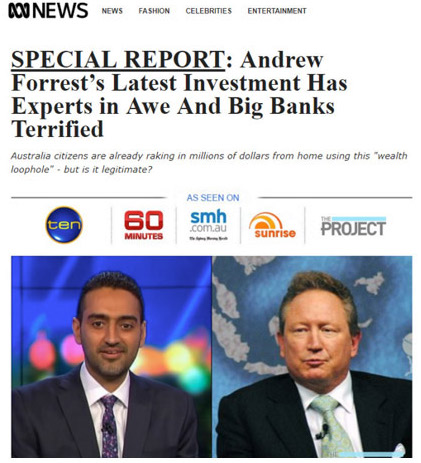Facebook’s parent company, Meta, has been ordered by a US court to provide details on how scammers use the social media platform to create scams ads as part of legal action by Dr Andrew Forrest.
The WA mining billionaire has been doing battle with Facebook both here and in California for the last three years over cryptocurrency scam ads featuring Forrest’s image that have cost people millions of dollars.
A hearing of the matter in US District Court last week saw the judge order Meta to provide the metadata for a sample of the scam ads as part of discovery in the case to try and determine who they were created, distributed and how much involvement and control Facebook had over their spread.
During that hearing it emerged that Forrest has featured in 230,000 scam ads since 2019.
Australian have lost more than $200 million from social media investment scams over the last five years.
The Fortescue Metals chair and philanthropist has previously accused Facebook of being “one of the world’s most pernicious publishers”, being “embarrassingly exploited” while also profiting from the scams.
Multiple celebrities, politicians and business people have featured in scam ads on Facebook, and while Meta say it’s working to stop them, the deluge has continued.

An example of an Andrew Forrest cryptocurrency scam ad.
Last April, Australia’s Director of Public Prosecutions dropped criminal charges against Meta in Western Australia, but consumer watchdog the ACCC is still pursuing its case against Facebook’s owner over scam ads, alleging Meta engaged in false, misleading or deceptive conduct by publishing scam advertisements.
Dr Forrest pressed on with his case in the US, and last June had a win when a judge rejected the social media giant’s attempts to have the matter dismissed.
Meta had been trying to immunity in the civil case by citing Section 230, a 30-year-old US law that shields tech platforms from liability for user-generated content.
Forrest’s legal team will now be able to review Meta’s software and artificial intelligence programs for signs that they contributed to spreading the fraudulent ads.
Forrest’s lawer, Simon Clarke said fraudsters are using Meta’s advertising systems “at an astonishing scale to exploit innocent Australians” costing many their life savings.
“Meta’s own tools have played a role in amplifying these scams, and the court has rightly ordered full transparency into how its advertising technology operates,” he said.
The matter is due back in court later this year.







